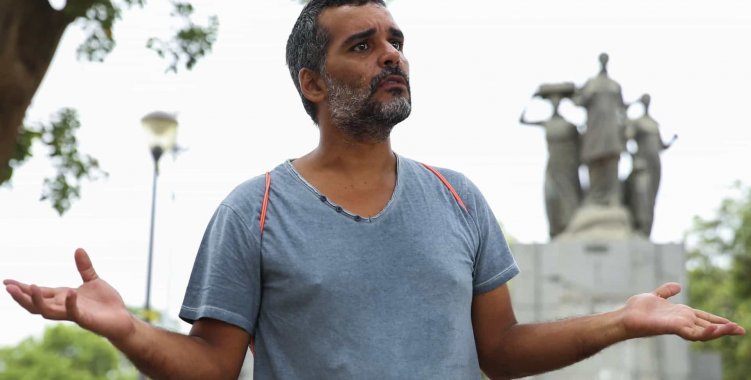Twenty years ago, on 4 April 2002, the government of the Movimento Popular de Libertação de Angola (MPLA) and the União Nacional para a Independência Total de Angola (UNITA), the two belligerent political formations that have been involved since the independence of the country, in a long civil war that dragged on for three decades, signed in the city of Luena (Moxico) the agreements that, finally, allowed Angola to live in peace.
But "after conquering the peace of arms, it is necessary to conquer social peace, it is necessary to create jobs, stability, dignity for the life (of Angolans)", says the Portuguese-Angolan activist Luaty Beirão, lamenting that "unfortunately, 20 years afterwards", peace is seen as a throwing weapon.
"It is permanently reminded that it is fragile. It is no wonder that, 20 years later, the election motto is still 'vote for peace'. There is a permanent reminder that peace has an owner and that this owner (the MPLA) is always predisposed to drop everything", he criticizes.
In an election year, the threat may be more real, admits the musician, who is known for his fight for freedom of expression, democracy and the fight against corruption.
Luaty Beirão was part of a group of 15 young people arrested in 2015, while debating a book on dictatorships and democracies, and accused of preparing a coup against the MPLA government, then led by José Eduardo dos Santos, a process that remained known as "15+2".
"It is a threat that is permanently reminded of: peace depends on one side and if that side is called into question, including losing elections in a clean way, it could be in question on the side of the Government", points out the activist, recognizing that "unfortunately, peace is fragile".
"Social peace has not been conquered, people are tense, they are angry and if things are not done in a way to decompress, there may be tensions that lead to conflicts", he considers, also stressing that Angolans never wanted war, before they were summoned for her.
According to Luaty Beirão, "whoever has the last word is whoever summons them, who puts weapons in their hands, who puts boots on their feet and sends them to a front they did not ask for new and that's a misfortune. It hurts".
Known in the artistic world as Ikonokasta, the 40-year-old "rapper" lived half of his life with the war, a period of which he has some unfortunate memories: "Of course, living in peace is better than living in war, I remember I love to see people, students, being picked up off the street and taken to the front, people who had to give up their lives so that we could be here today".
But he reinforces: "twenty years later it is impossible not to wonder what has been achieved, what has been achieved, what so many years of conflict, in which people sometimes involuntarily donated their lives, have brought to the country".
He regretted, on the other hand, that job creation and the diversification of the economy, promised more than 20 years ago, do not continue to be more than "clichés" that "to date have not materialized", which leaves "a bittersweet taste" as to the achievements of peace that "was a starting point".
He states, however, that it was not all missed opportunities.
"There is always something to be gained, there is a maturation that takes time, especially when there was no investment in education", said the activist, considering that this was one of the main missed opportunities, leading the country "to depend on foreigners for everything".
"We continue to throw out the window the opportunity to educate our population so that they can manage this country in the future and this seems to be done with intention", criticized Luaty Beirão, recalling that Angola has committed to investing 20 percent of its budget in education in 2000, which has not yet come to fruition.
Referring that "there are many wasted opportunities", he acknowledges, however, that "people are learning to claim and not let themselves be trampled on, as it used to be", although the process is slow.
"Sometimes we lose our youth, wanting things to go faster, we have to know how to accept that they don't always go at the pace we would like. But we must not continue to postpone the zero point", he concluded.







